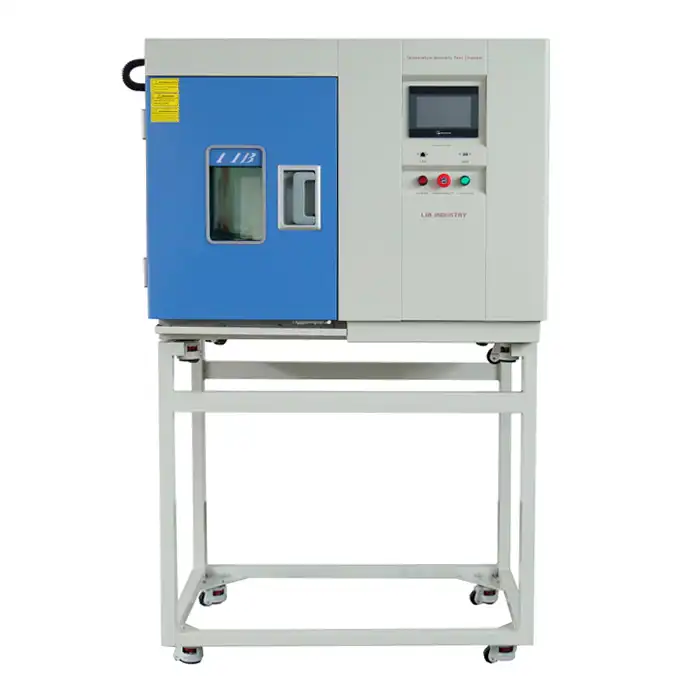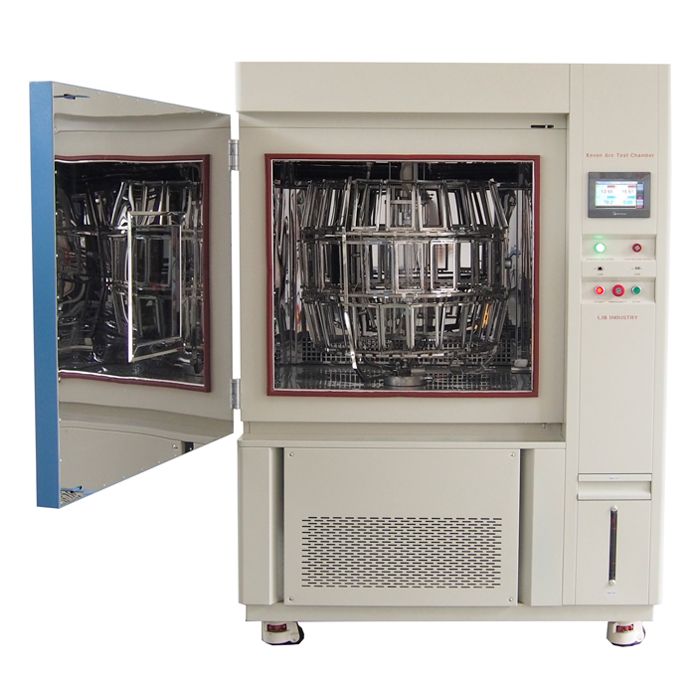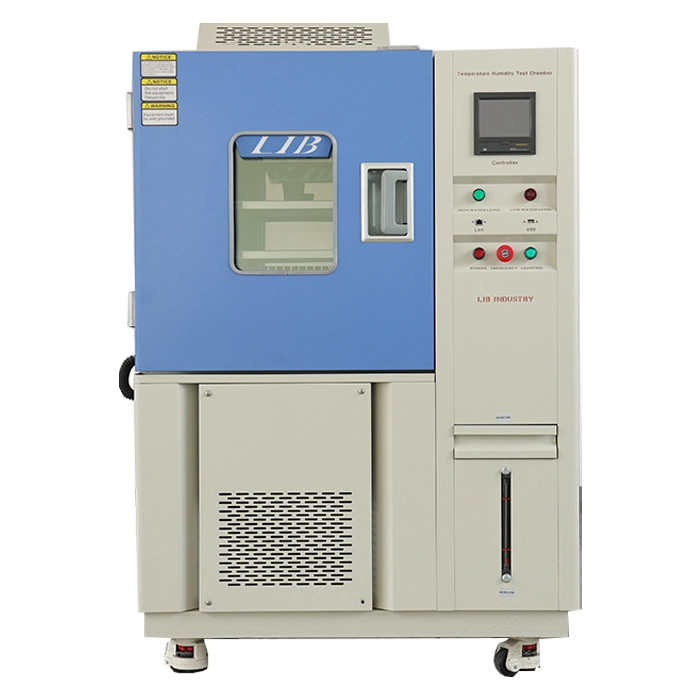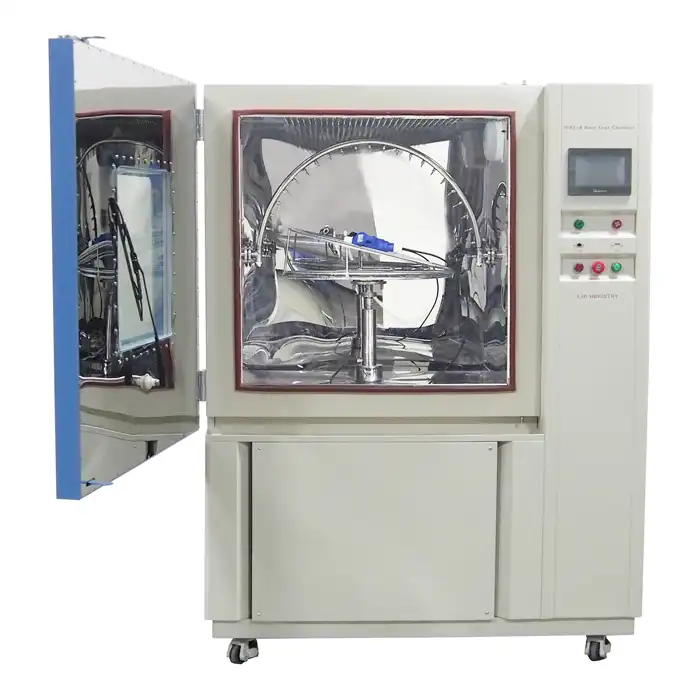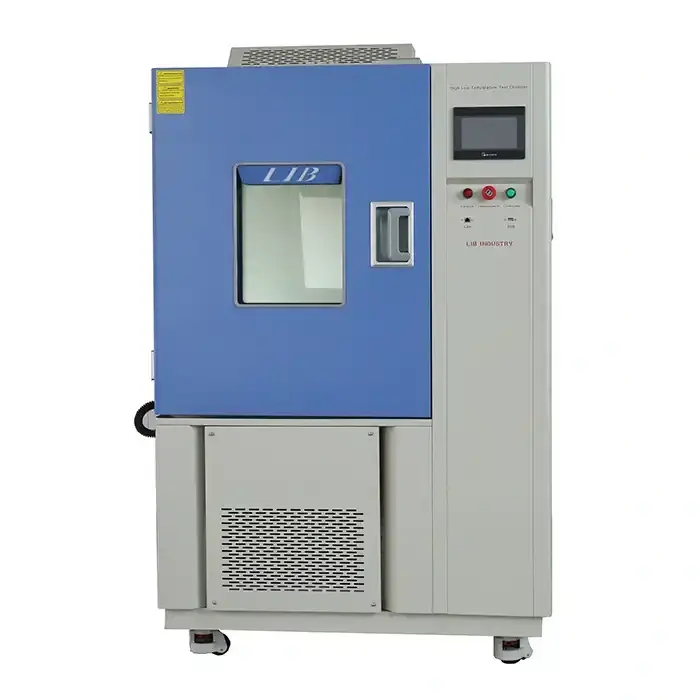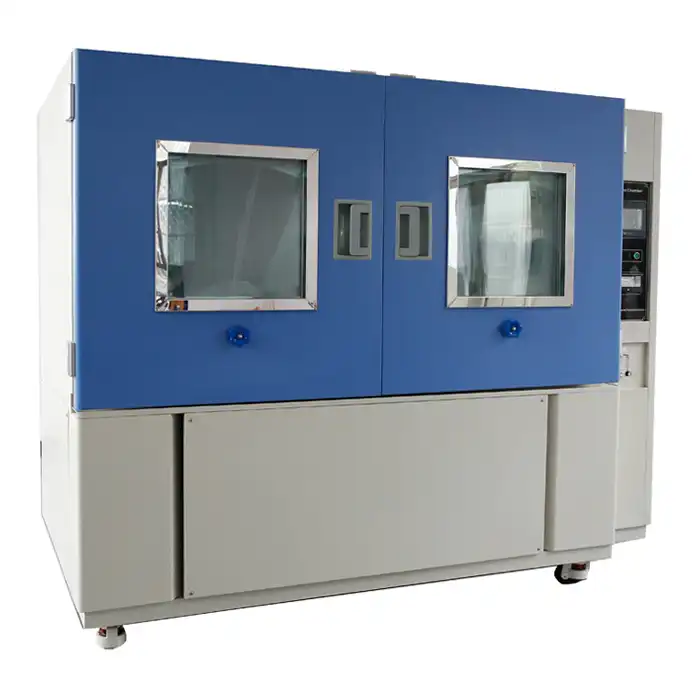Contact Us
 +8618700875368
+8618700875368
No.6 Zhangba First Street, High-Tech Area, Xi'an City, Shaanxi Province, P.R. China 710065
How Does Salt Spray Apparatus Contribute to Accurate Corrosion Evaluation?
2024-04-30 18:09:47
As an master in materials science and erosion assessment, I'm regularly inquired almost the viability and significance of salt shower device in evaluating the erosion resistance of materials. In this comprehensive direct, I'll dig into the essentials of salt shower device, its part in recreating destructive situations, the noteworthiness of erosion testing, and how to guarantee exact and dependable results.
1. What Is a Salt Shower Device and How Does It Reenact Destructive Environments?
Salt splash device is a standardized testing gadget utilized to mimic and quicken the destructive impacts that materials may encounter in real-world situations. It comprises of a chamber where a saline arrangement, ordinarily sodium chloride (NaCl), is atomized and showered onto test examples. This makes a destructive environment comparable to that found in coastal or mechanical settings where salt-laden discuss can cause quickened corrosion.
The introduction to salt shower in the salt splash device starts and quickens erosion forms on the test examples, permitting analysts and engineers to survey the materials' resistance to erosion over a generally brief period compared to characteristic introduction conditions.
2. Why Is Erosion Testing with Salt Splash Device Fundamental for Evaluating Fabric Resilience?
· Predictive Analysis: By subjecting materials to accelerated corrosion in a controlled environment, researchers can predict their performance and durability in real-world conditions.
· Quality Assurance: Manufacturers rely on corrosion testing to ensure that their products meet industry standards and regulatory requirements, guaranteeing quality and safety.
· Cost Efficiency: Identifying potential corrosion issues early in the development phase can save substantial costs associated with material failure and replacement in the future.
· Comparative Analysis: Corrosion testing allows for the comparison of different materials, coatings, or surface treatments to determine the most suitable option for specific applications.
3. How Can You Select the Right Salt Spray Apparatus for Your Corrosion Testing Needs?
Choosing the appropriate salt spray apparatus is crucial for obtaining accurate and reliable corrosion test results. Consider the following factors:
· Test Standards: Ensure that the salt spray apparatus complies with relevant industry standards such as ASTM B117, ISO 9227, or DIN 50021 to meet your testing requirements.
· Chamber Size: Select a chamber size that accommodates your test specimens adequately while maintaining uniform spray distribution and airflow.
· Material Compatibility: Verify that the materials used in the construction of the salt spray apparatus are compatible with the corrosive environment and won't interfere with test results.
· Automation and Monitoring: Look for features such as automated controls, data logging, and remote monitoring capabilities to enhance efficiency and accuracy in corrosion testing.
4. What Maintenance Practices Ensure Reliable and Repeatable Corrosion Test Results with Salt Spray Apparatus?
To ensure consistent and dependable corrosion test results, proper maintenance of the salt spray apparatus is essential. Implement the following maintenance practices:
· Regular Cleaning: Clean the salt spray apparatus chamber, nozzles, and other components regularly to prevent buildup of salt deposits and contaminants that could affect test results.
· Calibration Checks: Periodically calibrate the apparatus according to manufacturer guidelines to maintain accuracy in spray concentration, temperature, and humidity levels.
· Component Inspection: Inspect critical components such as pumps, valves, and spray nozzles for signs of wear or damage and replace them as needed to avoid inconsistencies in test conditions.
· Quality Control: Establish protocols for quality control checks to ensure the reliability and repeatability of corrosion test results, including verifying the uniformity of spray distribution and monitoring environmental conditions.
Application:
Automotive Industry: It is used to test the corrosion resistance of automotive components, such as body panels, undercarriages, and parts prone to rust due to road salts and sea spray. This helps in improving the materials used in vehicles to ensure they have a longer lifespan and require less maintenance.
Aviation Industry: Flying machine and aviation components are subjected to extraordinary conditions, counting presentation to salty discuss at tall heights. Salt splash testing guarantees that materials utilized can withstand such conditions without breaking down, guaranteeing the security and life span of aviation vehicles.
Metal Industry: Metals and their amalgams are tried for their resistance to erosion. This is vital for foundation ventures, maritime and marine applications, and any environment where metal parts are uncovered to saline or destructive atmospheres.
Coatings and Defensive Wraps up: The adequacy of defensive coatings, paints, and rust inhibitors on different substrates is assessed utilizing salt shower tests. This makes a difference in deciding the toughness of the wrap up and its capacity to ensure the basic fabric from corrosion.
Electronics Industry: Components and printed circuit sheets (PCBs) are tried to evaluate how well they can stand up to erosion due to introduction to muggy, salty discuss. This is vital for guaranteeing the unwavering quality and life span of electronic gadgets, particularly those utilized in marine situations or ranges with tall salinity.
Building Materials: Salt splash testing is moreover connected to materials utilized in development, such as latches, material materials, and open air installations, to guarantee that they can withstand destructive situations and keep up their basic judgment over time.
Research and Improvement: Past mechanical applications, salt shower device is utilized in R&D to ponder erosion forms, create modern corrosion-resistant materials, and test the adequacy of erosion inhibitors.
The use of a salt splash device permits producers and analysts to mimic a long time of natural presentation inside a moderately brief time, empowering the quick cycle and change of items for superior execution and toughness against erosion.
Conclusion:
In conclusion, salt spray apparatus plays a vital role in accurately evaluating the corrosion resistance of materials, helping industries make informed decisions about material selection, product development, and quality assurance. By understanding its principles, selecting the right apparatus, and implementing proper maintenance practices, researchers, and engineers can conduct corrosion testing effectively and efficiently.
LIB Industry concentrates on providing the Turn-key solution for environmental testing, encompassing research, design, production, commissioning, delivery, installation, and training. We offer comprehensive products and services tailored to our customers' requirements. For more information about salt spray apparatus, please contact us at info@libtestchamber.com.
References:
1. ASTM International. (n.d.). ASTM B117 - 19 Standard Practice for Operating Salt Spray (Fog) Apparatus. Retrieved from https://www.astm.org/Standards/B117.htm
2. International Organization for Standardization. (2017). ISO 9227:2017 Corrosion tests in artificial atmospheres - Salt spray tests. Geneva, Switzerland: Author.
3. DIN Deutsches Institut für Normung e.V. (2000). DIN 50021-SS:2010-06 Salt spray testing - Continuous. Berlin, Germany: Author.
Send us a message
Please Leave your Message Here! We Will Send Detail Techincal Brochure and Quotation to you!

